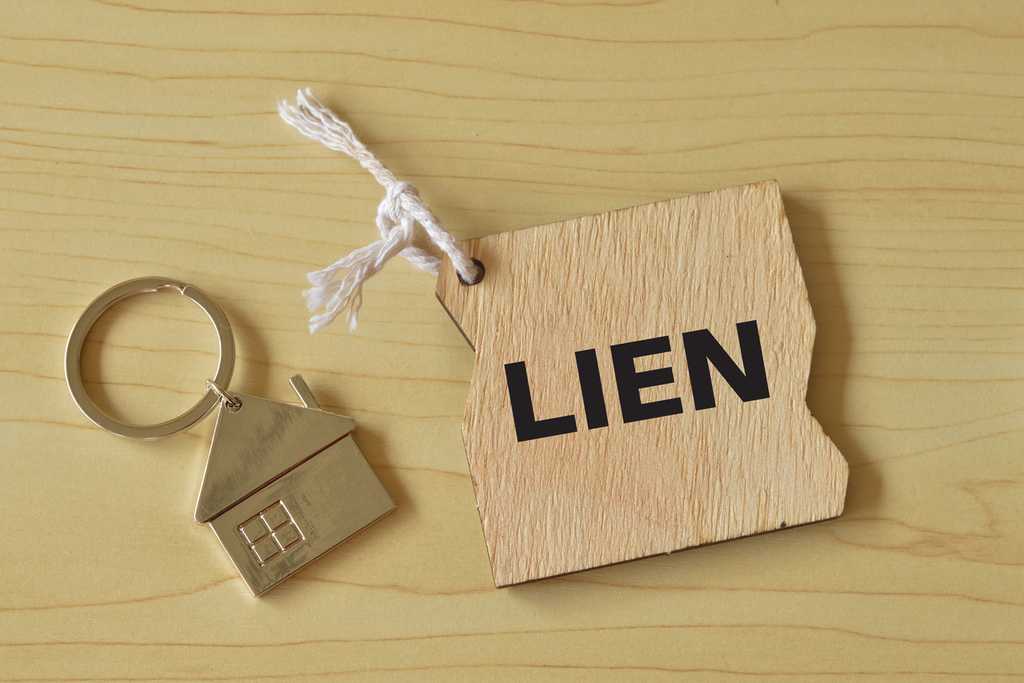When you owe a debt to a company, a lender or the government in some way, shape or form, it's possible you'll have a lien placed on your property. And while the word "lien" can sometimes have a negative connotation, not all liens are bad. If you took out a mortgage when you purchased the home you live in, for example, you have a lien against your real estate.
You're probably reading this guide because you want to know about the types of liens that exist, the difference between a levy and a lien, and how to get a lien removed from property you own. Let's take a closer look at what the word lien means and all the other pertinent information you want to know about.
What is a lien?
According to the Internal Revenue Service, a lien is a legal claim against your property in order to secure payment of a debt. If you owe federal tax debt, for example, a lien can be placed against property you own, and the property can be seized via a levy in order to satisfy the debt.
Other types of liens include the following:
- A mortgage, which is secured by the home and its actual value
- A car loan that is secured by a vehicle
- A furniture loan that uses the furniture itself as collateral
When a lien is filed against your property, it gives the lien holder the legal right to take the property back if you don't repay. If you don't pay the mortgage payment on your home, for example, you can have your property foreclosed upon. If you don't pay your car loan, the lender can show up at your house and repossess your vehicle.
How do liens work?
The way liens work can depend on how they are filed, whether through a creditor or a legal judgment. For loans that require a lien, for example, all parties agree to the lien upfront in order to secure the debt. This is the case when you take out a mortgage to purchase a home, and you voluntarily agree to a lien when you sign your loan documents at closing.
When a lien is filed through a legal judgment, such as when someone fails to repay a tax debt, the process is more complex. As an example, the IRS says that tax liens come to fruition when they assess a tax against you that you fail to pay. At that point, the IRS files a public document known as a Notice of Federal Tax Lien to alert creditors that the government has a legal right to your property. If they must, the IRS is then able to seize your property through a levy.
What types of liens are available?
Some liens are voluntary as we already pointed out, while others are entirely involuntary on the part of the property owner. Here's a rundown of the most common types of liens as well as a basic explanation of how they work.
Child support liens
This type of lien can be filed against a parent's real estate holdings when they fail to pay child support or court-ordered alimony payments. This lien stays in place until the parent sells the home, refinances their mortgage, or pays the lien off by getting up-to-date with their child support and/or alimony payments.
IRS liens
An IRS lien is filed by the federal government after someone fails to pay taxes owed. This type of lien allows the Internal Revenue Service to seize real property through a levy and sell it to resolve unpaid taxes.
Judgment liens
A judgment lien can be filed against someone who fails to repay unsecured debts such as credit card debt or medical bills. In this case, the creditor must file a lawsuit, win in court, and get a financial judgment in their favor before a lien can be filed.
Mechanic's lien
A mechanic's lien can be filed against real estate you own if you fail to pay a contractor for services rendered. If a company or a person remodels your kitchen and you fail to pay for labor or materials, for example, they can file a lien against you and your home. In this case, the lien would be legally required to be satisfied if you refinanced your home or sold your home.
Property tax liens
A property tax lien can be filed against your home and other property you own when you fail to pay your property tax bill. This type of lien allows the government to seize your property and sell it in order to pay off property taxes owed.
How to remove a lien
If you want to have a lien removed from property you own, there are three main strategies to consider. You can:
- Pay off the lien. This option is likely the best one to pursue, and that's true whether you have a mortgage on a home you own or have unpaid tax debts. When you pay off a lien, you resolve the debt while also staving off the financial and legal consequences of not doing so.
- Negotiate the lien. In some cases, you may be able to negotiate with a lien holder in order to pay less than you owe. This could mean negotiating a lump sum payment or setting up a payment plan if you don't have one in place already.
- Dispute the lien. If a lien is not valid or was placed on your property by mistake, you should take steps to legally dispute it. You need to do this using the court system, but only after providing proof that the lien should not be in place.
In some cases, a lien can be removed with no added work on behalf of the property owner. If you pay off your mortgage in full, for example, your lender will sign a satisfaction of mortgage and a lien release, which is the formal process required to give up their claim against the property.
Other options, like negotiating a lien or disputing a lien, require some legwork on the property owner's part. The court system may even have to get involved in order to settle various lien disputes.
Loan lien requirements
We already mentioned how liens are filed with certain types of loans that use an underlying asset as collateral.
Examples of loans with a lien requirement include:
- Auto loans
- Certain types of business loans
- Conventional mortgages
- Home equity lines of credit
- Home equity loans
- FHA loans
- USDA loans
- VA loans
That said, plenty of unsecured loans come entirely free of liens. Some lien-free loan types include:
- Credit cards
- Medical debt
- Personal loans
- Student loans
- Unsecured lines of credit
With these types of loans, the amount borrowed is entirely unsecured by the lender. This means there may be nothing to foreclose on or seize if the borrower never repairs their loan amount.
Liens and loans
When it comes to liens, it's important to note that some are more beneficial than others overall. For example, taking out a mortgage to purchase your dream home can be a net positive for your personal and financial life, whereas having a lien placed by the IRS for unpaid taxes is never a good thing.
Now that you know how liens work, you can take steps to avoid the liens you don't want to deal with. When the IRS or federal government says you owe them money, there's almost no way around it.

